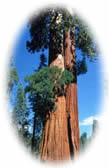
Grades 9-12

Don't have an account yet? Sign up for free
Don't have an account yet? Sign up for free

What do you think of when you think of the National Parks System? Do you think of the majesty of the Grand Canyon and the redwoods of Northern California? Or does the serenity of Cape Cod and the Everglades come to mind?
 What do you think of when you think of the National Parks System? Do you think of the majesty of the Grand Canyon and the redwoods of Northern California? Or does the serenity of Cape Cod and the Everglades come to mind? Or do you picture the patriotic splendor of the monuments in Washington, D.C.?
What do you think of when you think of the National Parks System? Do you think of the majesty of the Grand Canyon and the redwoods of Northern California? Or does the serenity of Cape Cod and the Everglades come to mind? Or do you picture the patriotic splendor of the monuments in Washington, D.C.?
Behind these beautiful images, unfortunately, the National Park System faces some ugly issues. The NPS’s 378 park areas are expected to see almost 300 million visitors in 1999, breaking the 1998 record of 286 million. The enormous number of visitors and the constant threat of development present the national parks with a variety of problems.
Check out the Top Ten Reasons to Reinvest in America’s National Park Heritage at https://books.google.com/books?id=bQ0EAAAAMBAJ&pg=PA36&lpg=PA36&dq=npca+Faded+Glory&source=bl&ots=XAX1MTwk13&sig=ACfU3U1imQaq3PBAunE5lV3YTPyqXmi9kQ&hl=en&sa=X&ved=2ahUKEwiZiauMzfPjAhUDU98KHfb-C5gQ6AEwAnoECAgQAQ#v=onepage&q=npca%20Faded%20Glory&f=false .
In its August 10, 1998 Issue of the Week, policy.com reports a 1996 statement from Rep. Bruce Vento, D-Minn. The article states that:
“Rep. Bruce Vento, D-Minn., argues, ‘Plans to increase park entrance fees, charge youngsters, and change the collection system in other ways may compromise the access people now enjoy.’ While Rep. Vento supports some access fees as necessary in today’s budget crunch, he says that the main focus of national park policy should be accessibility to the public for a nominal fee, or for free. He argues that the American people own the national parks and already contribute toward their upkeep through federal taxes, and that their entrance fees would only contribute a small part of the monies necessary for national parks maintenance if collected. He also says that those seeking to fund the parks should examine concessionaire policies that offer tax breaks to businesses before charging entrance fees.”
Some outdoor recreation advocacy groups such as the International Mountain Bicycling Association agree with Senator Vento that park fees should not be increased. Specifically, IMBA Communications Director Gary Sprung asserts, “We should resist this infringement on our freedom. Our public lands are symbols of freedom.” (https://www.debate.org/opinions/should-students-pay-to-play-sports )
Moreover, Editorial Writer Howard Gleckman makes a case for higher fees in the September 1, 1997, issue of Business Week Online entitled What America’s National Parks Need: Higher Fees . Senator https://www.johnmccain.com/ also argues in favor of fee increases, stating that “Capital needs at our national parks have soared to more than $4 billion and have far outpaced our available resources,” said McCain. “At the same time, more than a quarter of a billion people visit our national parks every year and that number is expected to increase. Clearly, we must seek new ways of financing park needs in order to preserve our natural resources for future generations.”
https://buschgardens.com/ [Adult $61.95, Child $51.95]
https://www.marriott.com/hotels/hotel-deals/asexr-the-st-regis-aspen-resort/?program=spg [Adult $214 ($53.50), Child $138 ($34.50), Teen $170 ($42.50)] [NOTE: This site offers minimum four-day lift-ticket passes, and the students are asked to find the cost for a one-day visit. Remind them that they will need to divide the lift-ticket prices by four to find the one-day price.]
https://www.monticello.org/visit/tickets-tours/ [Adult $15.00, Child $7.00]
https://phillyzoo.pivvit.com/purchase-tickets [In-Season costs: Adult $16.95, Child $13.95]
[NOTE: Please note the prices for the zoo are in season rates only.]
What’s the final price for you and your family?
[Answers will vary.]
[Note to teachers: MarcoPolo Project Geography Connection: Direct your students to Xpeditions , a website by the National Geographic Society, a MarcoPolo Content Partner. Enter Xpedition Hall and choose Standard #14: The Garden. Click on “Land” and read about Japan’s Mount Fuji, which faces problems similar to our national parks. Officials in Japan Decided to build a new parking lot to accommodate visitors. Discuss the costs and benefits of this policy.]

Grades 9-12

Grades 6-8, 9-12

Grades 9-12

